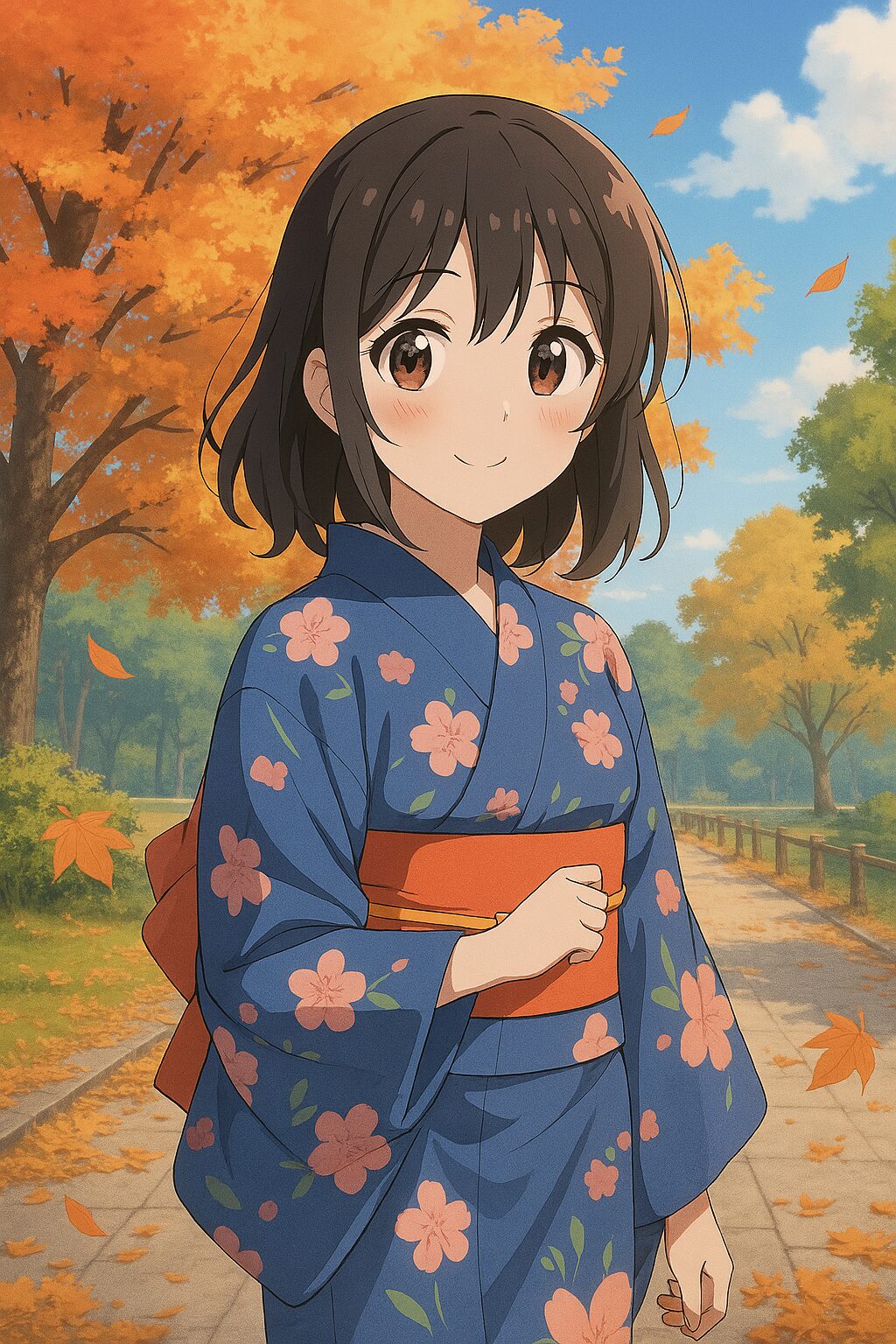- A Journey Through Japan’s Culture of Seasonal Sensitivity and Visual Storytelling
- 🍁 1. The Philosophy of “Kisetsukan” — Feeling the Season
- 🎎 2. Characters as Seasonal Companions
- 🌸 3. Marketing Meets Emotion: The Power of Limited Editions
- 🧵 4. Tradition and Innovation: Why It Works
- 🌍 5. What International Fans Can Learn
- ✨ Conclusion: Why Japan Dresses Its Characters for the Seasons
- 🔗 Recommended Links
- 四季と感情をつなぐビジュアル文化の秘密
A Journey Through Japan’s Culture of Seasonal Sensitivity and Visual Storytelling
In Japan, the seasons are more than just changes in weather—they are emotional landscapes, poetic transitions, and cultural rhythms that shape everyday life. From cherry blossoms in spring to snow-covered shrines in winter, the Japanese calendar is a canvas painted with subtle shifts and vibrant celebrations.
But what surprises many international visitors is how deeply this seasonal awareness permeates even pop culture. Anime characters don yukata in summer festival episodes, mascots wear scarves in winter, and limited-edition merchandise blooms and fades with the seasons. Why does Japan infuse its fictional worlds with such real-world seasonality?
🍁 1. The Philosophy of “Kisetsukan” — Feeling the Season
The Japanese word 季節感 (kisetsukan) refers to the feeling or atmosphere of a season. It’s not just about temperature—it’s about mood, color, scent, and memory. This concept is deeply rooted in traditional arts like haiku, tea ceremony, and kimono design.
- Seasonal clothing: Yukata in summer, coats in winter, school uniforms with seasonal variations
- Background settings: Cherry blossoms, autumn leaves, cicadas, snowflakes
- Limited-time story arcs: Summer festivals, Christmas episodes, New Year’s shrine visits
This sensitivity to seasonal nuance creates emotional resonance. Viewers feel nostalgia, anticipation, and a sense of shared time—even if they live halfway across the world.
🎎 2. Characters as Seasonal Companions
In Japan, characters are not static—they evolve with the seasons. Mascots, anime icons, and even corporate logos often change attire or expressions to match the time of year.
Examples include:
- Totoro’s Rainy Season Tenugui – Studio Ghibli blends traditional craft with seasonal charm.
- Astro Boy × Mino-Washi Collaboration – A fusion of pop culture and traditional washi paper.
- Naruto Daruma Dolls – Seasonal reinterpretations of iconic characters.
🌸 3. Marketing Meets Emotion: The Power of Limited Editions
Japan’s seasonal character marketing is a masterclass in emotional branding. Limited-edition goods tied to seasons create urgency, nostalgia, and delight.
According to One Step Beyond, seasonal marketing thrives because:
- Consumers associate seasons with specific emotions and memories
- Seasonal goods feel more “alive” and meaningful
- Limited-time offers encourage spontaneous purchases and social sharing
Explore seasonal merchandise at Animate Online.
🧵 4. Tradition and Innovation: Why It Works
| Element | Traditional Root | Modern Expression |
|---|---|---|
| Kisetsukan | Haiku, tea ceremony | Anime backgrounds, seasonal episodes |
| Limited-time goods | Seasonal festivals, omiyage | Character merchandise, pop-up stores |
| Visual storytelling | Kimono motifs, seasonal crafts | Anime fashion, mascot redesigns |
| Emotional rhythm | Seasonal greetings, poetry | Social media campaigns, fan art trends |
🌍 5. What International Fans Can Learn
For overseas readers, Japan’s seasonal character culture offers more than aesthetic pleasure—it’s a lesson in mindfulness.
- Notice the seasons: Pay attention to small changes in nature, mood, and light
- Celebrate transitions: Mark seasonal shifts with rituals, decorations, or themed experiences
- Embrace impermanence: Like cherry blossoms, seasonal goods remind us that beauty is fleeting—and that’s what makes it precious
✨ Conclusion: Why Japan Dresses Its Characters for the Seasons
In Japan, even fictional characters live in sync with the seasons. They wear yukata, sip warm tea, and walk beneath falling leaves—not just for style, but to evoke feeling, memory, and shared time.
This seasonal sensitivity reflects a deeper cultural philosophy: that life is beautiful because it changes. And through characters, Japan invites the world to feel that beauty—one season at a time.
🔗 Recommended Links
- Studio Ghibli’s Seasonal Tenugui
- Astro Boy × Mino-Washi Collaboration
- AnimeJapan 2025 Seasonal Goods
- Understanding Japan’s Seasonal Marketing
- Animate Online Shop
🌸 なぜ日本のキャラクターは季節をまとうのか?
四季と感情をつなぐビジュアル文化の秘密
日本において、季節は単なる天候の変化ではありません。感情の風景であり、詩的な移ろいであり、日常を彩る文化的リズムです。春の桜から冬の雪景色まで、日本のカレンダーは繊細な変化と鮮やかな祝祭で彩られています。
そして驚くべきことに、この季節感はポップカルチャーにも深く浸透しています。アニメのキャラクターは夏祭りで浴衣を着たり、冬にはマフラーを巻いたり、季節限定のグッズが登場したりします。なぜ日本では、架空のキャラクターまでもが季節をまとうのでしょうか?
🍁 1. 「季節感」という美意識
「季節感(きせつかん)」とは、季節の雰囲気や気配を感じ取る感性のことです。気温だけでなく、空気の色、匂い、記憶に宿る感情まで含まれます。これは俳句や茶道、着物の柄など、伝統芸術に深く根付いた美意識です。
- 季節の衣装:夏の浴衣、冬のコート、制服の衣替え
- 背景の演出:桜吹雪、紅葉、蝉の声、雪の結晶
- 季節限定の物語:夏祭り、クリスマス、新年の初詣
こうした演出は、視聴者に郷愁や期待感、時間の共有感をもたらします。たとえ遠く離れた国に住んでいても、日本の季節を感じることができるのです。
🎎 2. キャラクターは季節の案内人
日本では、キャラクターは季節とともに変化します。マスコットやアニメのアイコン、企業ロゴまでもが季節に合わせて衣装や表情を変えるのです。
たとえば:
- トトロの梅雨てぬぐい — スタジオジブリが季節の工芸とキャラクターを融合
- 鉄腕アトム × 美濃和紙コラボ — 伝統工芸とポップカルチャーの融合
- ナルトの季節限定だるま — 新年の縁起物として再解釈されたキャラクター
🌸 3. 感情に訴えるマーケティング
日本の季節限定キャラクターグッズは、感情に訴えるマーケティングの好例です。「今だけ」の商品は、懐かしさや喜びを呼び起こし、購買意欲を高めます。
One Step Beyondによると、季節マーケティングが成功する理由は:
- 季節に特有の感情や記憶が消費者に根付いている
- 季節限定商品は「生きている」ように感じられる
- 限定性が購買行動やSNSでの共有を促す
最新の季節グッズはアニメイトオンラインショップでチェックできます。
🧵 4. 伝統と革新の融合
| 要素 | 伝統的なルーツ | 現代的な表現 |
|---|---|---|
| 季節感 | 俳句、茶道 | アニメの背景、季節回 |
| 限定商品 | 季節の祭り、お土産 | キャラグッズ、ポップアップストア |
| 視覚表現 | 着物の柄、季節の工芸 | アニメ衣装、マスコットの衣替え |
| 感情のリズム | 季節の挨拶、詩歌 | SNSキャンペーン、ファンアート |
🌍 5. 海外ファンが学べること
日本の季節キャラクター文化は、単なる美的楽しみを超えて、心のあり方を教えてくれます。
- 季節を感じる:自然や空気の変化に目を向ける
- 移ろいを祝う:季節の節目を儀式や装飾で楽しむ
- 儚さを受け入れる:桜のように、限られた美しさに価値を見出す
✨ 結論:キャラクターが季節をまとう理由
日本では、架空のキャラクターでさえ季節とともに生きています。浴衣を着て、温かいお茶を飲み、紅葉の下を歩く——それは単なる演出ではなく、感情や記憶、時間の共有を表現する手段です。
この季節感は、「変化こそが美しさである」という文化的哲学の表れです。そしてキャラクターを通じて、日本は世界にその美しさを感じてもらおうとしているのです。



コメント